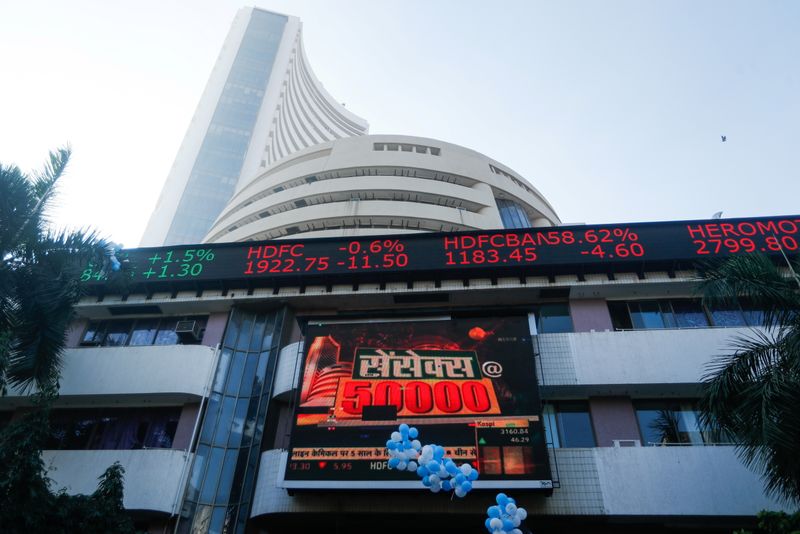
© Reuters
By Ambar Warrick
Investing.com– Most Asian stock markets fell on Friday, and were set to end the week lower as hawkish signals from Federal Reserve officials drove up concerns that rising interest rates could cause a recession.
Hong Kong’s index was the worst performer in the region this week, heading for a weekly loss of 2.4%. Technology stocks in the Hang Seng were hit especially hard by rising U.S. Treasury yields and renewed concerns over a U.S. blockade on semiconductor exports to China.
The Hang Seng also fell 0.7% on Friday.
Chinese stocks fell slightly, and were also set to end the week lower, although positive signals on COVID restrictions and hopes of stimulus measures helped trim some losses for the week.
Reports that Beijing will scale back certain COVID quarantine measures helped spur some optimism over China, even as the government reiterated its commitment to maintaining the strict zero-COVID policy.
Sentiment was also encouraged by the People’s Bank holding interest rates at accommodative levels, along with promises of increased stimulus spending by the government. The index was flat on Friday and headed for a weekly loss of 0.6% – its third straight week of declines.
Focus is now on the release of third-quarter economic growth data, which was delayed indefinitely by the Chinese government.
Asian stocks slipped this week on a series of hawkish comments from Federal Reserve officials. Most recently, Philadelphia Fed President Patrick Harker warned that the central bank is actively trying to slow the economy to combat , ramping up fears of a U.S. recession.
His comments caused to spike to levels last seen during the 2008 financial crisis, as investors penciled in more interest rate hikes by the Fed.
Markets are pricing in a that the central bank will raise rates by 75 basis points in November.
Wall Street indexes tumbled overnight, despite positive cues from some corporate earnings.
Japan’s index fell 0.5% after data showed hit an eight-year high in September, pointing to more pressure on the Japanese economy. The also sank to its weakest level since 1990.
India’s index bucked the trend, rising 0.4%. The index was also the best performer in Asia this week with a 2.6% rise.
Gains in the Nifty 50 were spurred largely by major bank and consumer staples, with both sectors set to benefit from rising and elevated levels in the country.


Be the first to comment